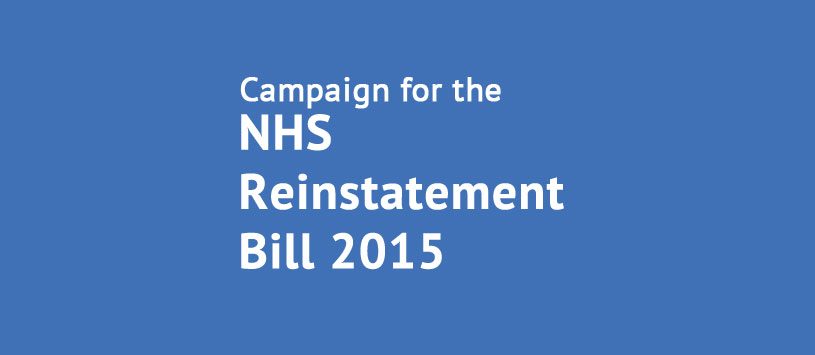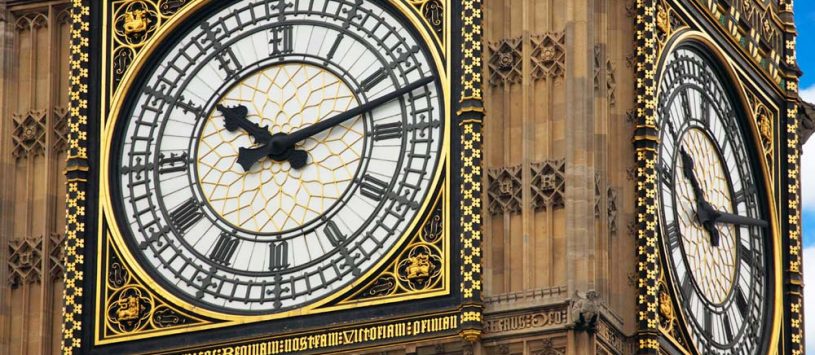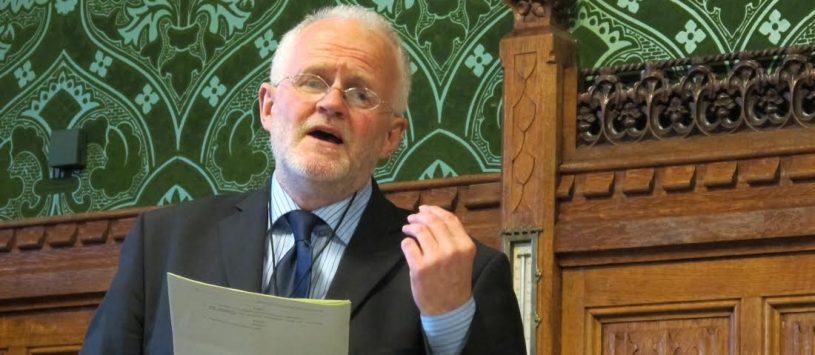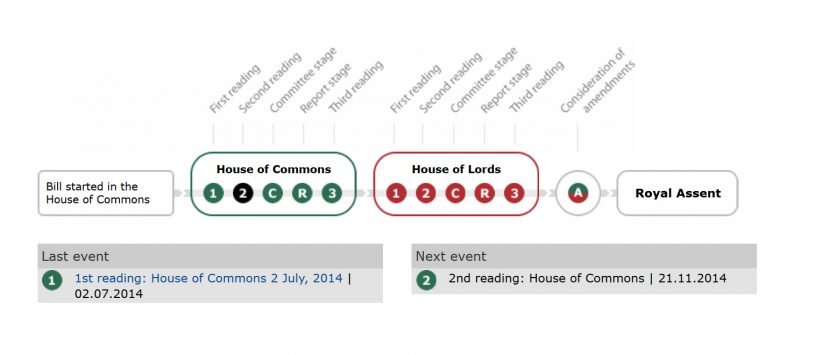The story so far
The NHS was set up by a law – the NHS Act 1946. Since then, there have been dozens of Acts affecting it – especially over the last 25 years or so.
The most radical of these laws was the Health and Social Care Act 2012, because it abolished the legal duty on the government to provide key NHS services in England, and took marketisation to a new level.
We need a law to reinstate that legal duty, to stop marketisation, and to re-establish public bodies. Without a law, the process now rapidly underway will continue.
This is why Peter Roderick and Professor Allyson Pollock drafted a NHS Reinstatement Bill in August 2014. This Bill was put out for consultation, and dozens of responses from individuals and organisations were received. The consultation on the proposed NHS Reinstatement Bill ended in December 2014.
NHS Reinstatement Bill – February 2015
 Peter Roderick and Allyson Pollock have since drafted a new version of the Bill, finalised on 21 February 2015.
Peter Roderick and Allyson Pollock have since drafted a new version of the Bill, finalised on 21 February 2015.
The new version of the NHS Reinstatement Bill is available here.
The explanatory notes are available here.
The comparison between the previous and current version of the Bill is available here.
Brief summary of the NHS Reinstatement Bill, February 2015
In short, the Bill proposes to fully restore the NHS as an accountable public service by reversing 25 years of marketization in the NHS, by abolishing the purchaser-provider split, ending contracting and re-establishing public bodies and public services accountable to local communities.
This is necessary to stop the dismantling of the NHS under the Health and Social Care Act 2012. It is driven by the needs of local communities. Scotland and Wales have already reversed marketization and restored their NHS without massive upheaval. England can too.
The Bill gives flexibility in how it would be implemented, led by local authorities and current bodies.
It would:
- reinstate the government’s duty to provide the key NHS services throughout England, including hospitals, medical and nursing services, primary care, mental health and community services,
- integrate health and social care services,
- declare the NHS to be a “non-economic service of general interest”, asserting the full competence of Parliament and the devolved bodies to legislate for the NHS,
- abolish the NHS Commissioning Board (NHS England) and re-establish it as a Special Health Authority with regional committees,
- plan and provide services without contracts through Health Boards, which could cover more than one local authority area if there was local support,
- allow local authorities to lead a ‘bottom up’ process with the assistance of clinical commissioning groups (CCGs), NHS trusts, NHS foundation trusts and NHS England to transfer functions to Health Boards,
- abolish NHS trusts, NHS foundation trusts and CCGs after the transfer by 1st January 2018,
- abolish Monitor – the regulator of NHS foundation trusts, commercial companies and voluntary organisations – and repeal the competition and core marketization provisions of the 2012 Act,
- integrate public health services, and the duty to reduce inequalities, into the NHS,
- re-establish Community Health Councils to represent the interest of the public in the NHS,
- stop licence conditions taking effect which have been imposed by Monitor on NHS foundation trusts and that will have the effect of reducing by April 2016 the number of services that they currently have to provide,
- require national terms and conditions under the NHS Staff Council and Agenda for Change system for relevant NHS staff,
- centralise NHS debts under the Private Finance Initiative in the Treasury, and require the Treasury to report to Parliament on reducing them,
- abolish the legal provisions passed in 2014 requiring certain immigrants to pay for NHS services
- prohibit ratification of the Transatlantic Trade and Investment Partnership and other international treaties without the approval of Parliament and the devolved legislatures if they would cover the NHS,
- require the government to report annually to Parliament on the effect of treaties on the NHS.
Further and consequential amendments would also be necessary and these would be contained in a simultaneous NHS (Consequential Provisions) Act.
Take Action
We need MPs in the next session of parliament to commit to backing an NHS Reinstatement Bill.
Please help by contacting your MP and prospective parliamentary candidates in the run up to the election on May 7, asking them to state their support for an NHS Reinstatement Bill.
Please let us know their response, by emailing <info@nhsbill2015.org>.
You can see whether your MP and candidates have already replied here.











